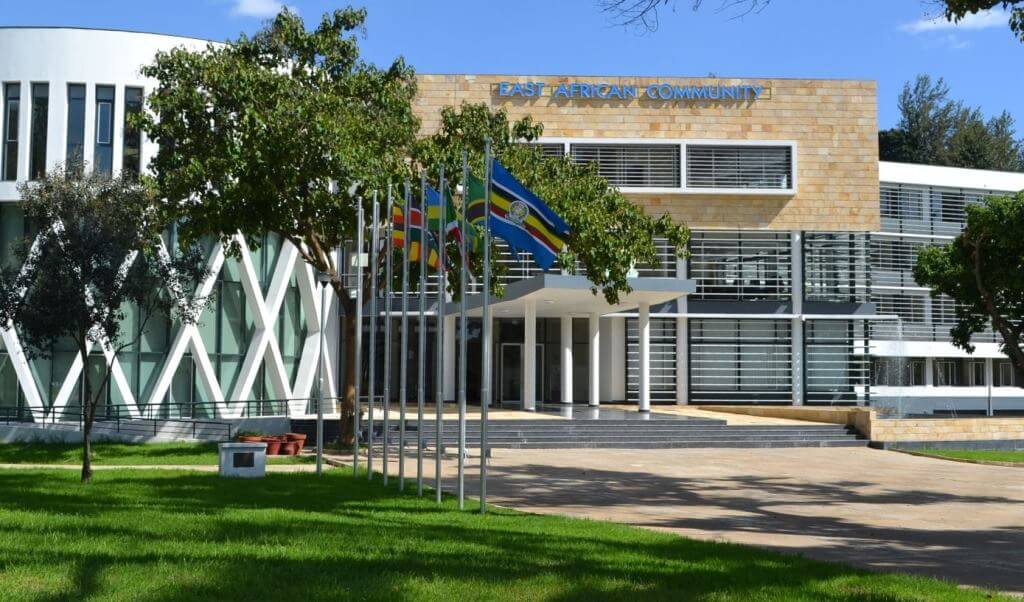The rebirth of the East African Community has seen more strides pacing it ahead of all the other economic blocks in Africa.
A community that started with three countries has ever since attracted more countries including Rwanda, Burundi, South Sudan, and DRC which is set to join this economic block. Some of the reasons that have the EAC set on a successful trajectory include:
- Free labour movement across the borders
- Free movement of goods across the borders
- A Common Language, Kiswahili which is a native language in Kenya, Tanzania, Uganda, and DRC also an official language in Rwanda and Burundi
- Huge cultural similarities
- Common Sea Ports mainly Mombasa and Dar el Salaam
Since its initial formation by the pioneer heads of States, Dr. Milton Obote (Uganda), Mwalimu Julius Nyerere (Tanzania), and Mzee Jomo Kenyatta (Kenya), the East African community was formed to create a consolidated market for its member states’ population. However with differences following the coup in Uganda and Amin coming into the picture the community collapsed.
The East African Community (EAC), with its common market, transport, and communications corporations, scientific research institutions, and the East African Development Bank (EADB) was once regarded as a model for African regional integration. However, the Community ran into serious political and economic difficulties and broke up in July 1977.
The East African Community (EAC) is a regional intergovernmental organization of 6 Partner States: the Republics of Burundi, Kenya, Rwanda, South Sudan, the United Republic of Tanzania, and the Republic of Uganda, with its headquarters in Arusha, Tanzania.
The EAC is home to 177 million citizens, of which over 22% is the urban population. With a land area of 2.5 million square kilometers and a combined Gross Domestic Product of US$ 193 billion (EAC Statistics for 2019), its realization bears great strategic and geopolitical significance and prospects for the renewed and reinvigorated EAC.
Kenya, DRC Governments Announce Trade Mission to DRC in Partnership with Equity Group
The work of the EAC is guided by its Treaty which established the Community. It was signed on 30 November 1999 and entered into force on 7 July 2000 following its ratification by the original three Partner States – Kenya, Tanzania, and Uganda.
The Republic of Rwanda and the Republic of Burundi acceded to the EAC Treaty on 18 June 2007 and became full Members of the Community with effect from 1 July 2007. The Republic of South Sudan acceded to the Treaty on 15 April 2016 and become a full Member on 15 August 2016.
As one of the fastest-growing regional economic blocs in the world, the EAC is widening and deepening cooperation among the Partner States in various key spheres for their mutual benefit. These spheres include political, economic, and social.
At the moment, the regional integration process is in full swing as reflected by the encouraging progress of the East African Customs Union, the establishment of the Common Market in 2010, and the implementation of the East African Monetary Union Protocol.
Current status
The process towards an East African Federation is being fast-tracked, underscoring the serious determination of the East African leaders and citizens to construct a powerful and sustainable East African economic and political bloc.
DRC TO JOIN EAST AFRICAN COMMUNITY 29TH MARCH 2022
THE Democratic Republic of Congo (DRC) will on March 29th this year be officially admitted into the East African Community (EAC).
Speaking in Nairobi yesterday, EAC Secretary General Peter Mathuki hinted that the second largest country on the continent was likely to join the bloc towards the end of this month. Early this year, the DRC reaffirmed its willingness to join the EAC.
DRC’s Deputy Prime Minister, who doubles as the country’s Foreign Affairs Minister Christophe Lutundula Apala Pen’Apala, said DRC was looking forward to increased trade and investment, and strengthened relations with EAC, adding that the country’s relations with the EAC Partner States had largely been at a bilateral level.
According to Pen’Apala, Africa’s second-largest country was keen to cooperate with the regional bloc for maximum exploitation of both natural and human resources in the region. He further expressed hope that this would be the last round of negotiations before DRC is admitted into the EAC.
“We, at DRC have a population which is comprised of consumers who are mainly a big market for the region,”
he stated. He noted that his country was currently in dire need of investors and was therefore offering incentives for entrepreneurs who would like to invest in the country.
He also singled insecurity issues that the country faces, particularly in the eastern part, adding that the country was therefore keen on tackling the challenges together with the EAC.
The Minister further disclosed that DRC had embarked on a national program of reconstruction in various sectors including infrastructure, agriculture, energy, and environmental conservation.
The Summit of EAC Heads of State at its 21st Ordinary Meeting held in February last year considered the application by DRC to join the Community and directed the Council to expeditiously undertake a verification mission in accordance with the EAC procedure for admission of new members into the EAC and report to the 22nd Summit.

